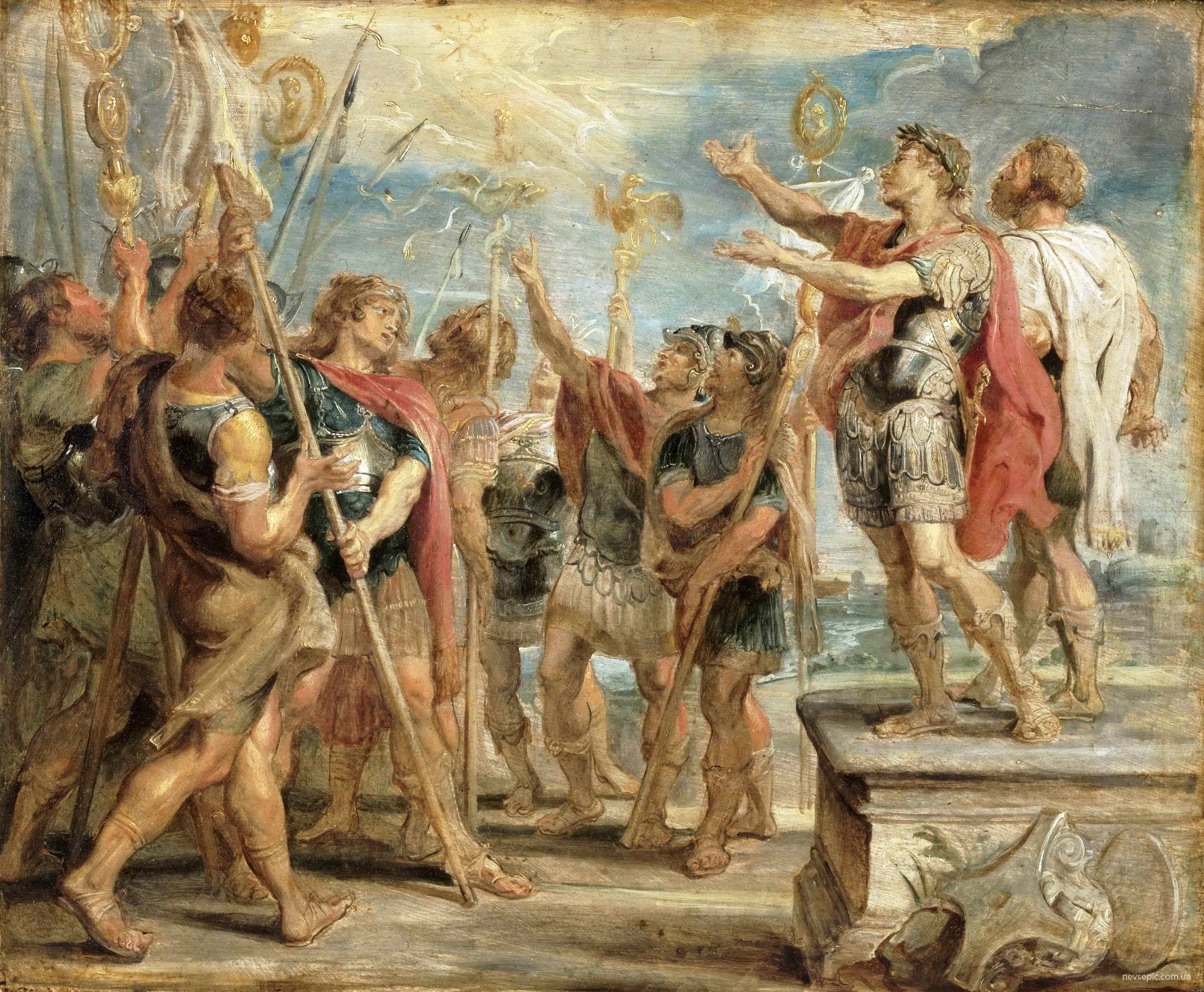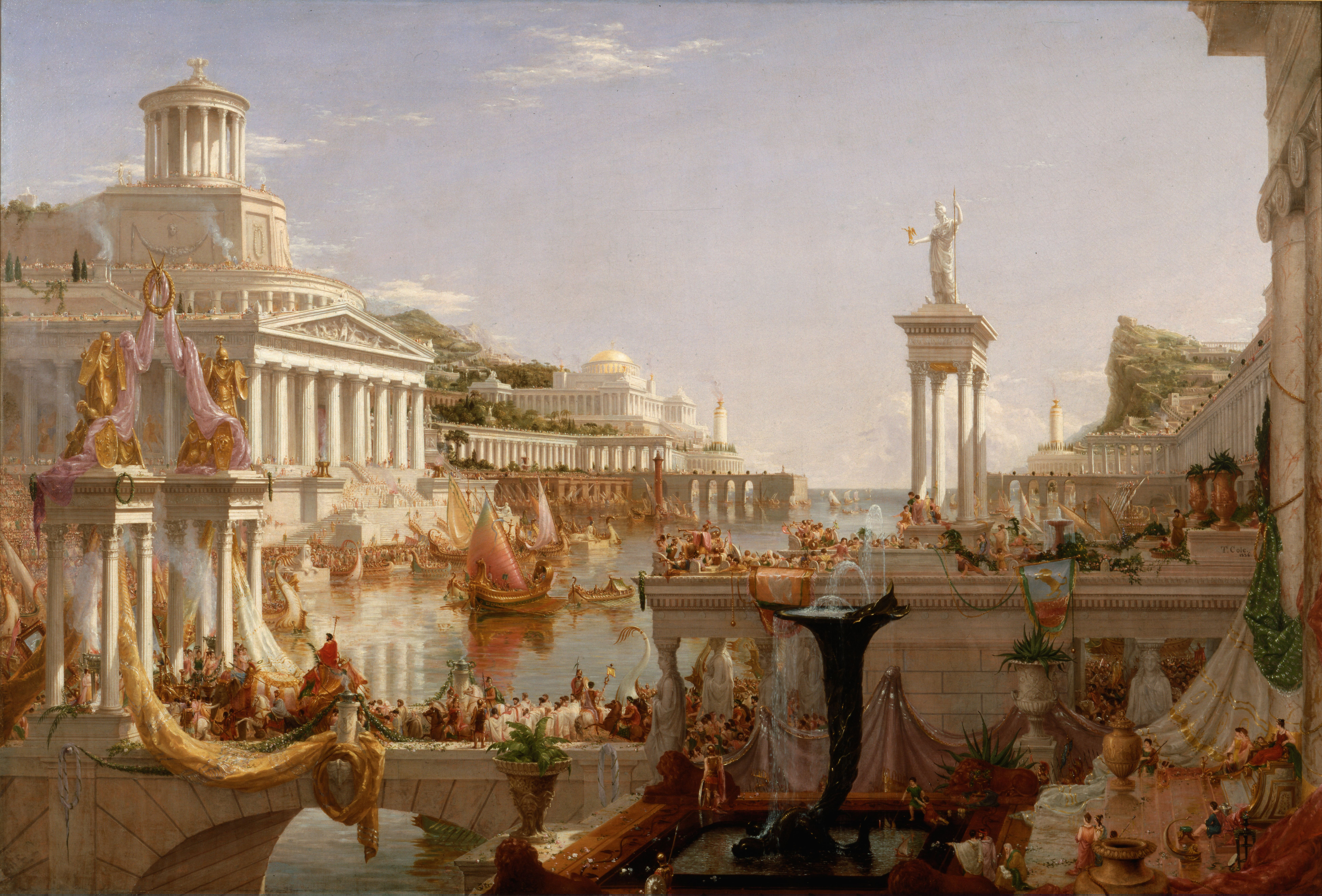Chapter 11 Part D
It is interesting to
note at least once in this book the intricacies of the socio-historical process.
Even societies which seems to have reached equilibrium always contain a few
individuals who restlessly test their society’s accepted worldview, values, and
behavioral morés. These people and their disciples are often the young, which
tells us that adolescent revolt plays a vital role in the evolution of society.
However,
what is more important to understand is that many people in the rest of society
see these new thinkers and their followers as delinquents, and only a few see
them as great men. What is even more important to see is that the numbers
involved on each side really don't matter. What does matter is whether the new
thinkers’ ideas attract at least a few followers and whether the ideas work,
which is to say, whether the followers then live better than the rest of the
society.
A society, like any living thing,
needs to be opportunistic, constantly testing and searching for ways to grow, even though many
of its citizens may bitterly resent the means by which it does so and may do
all within their power to quell the process. Often they can, but not always.
For Western society, until the more effective features of its Classical values
were integrated with its more respectful, humane Christian ones, Europeans just
did not love or support thinkers with ideas and mores that focused on the life of this
material world before death.
Philosophers, scientists, inventors, and
entrepreneurs are, by their very nature, eccentric. They don't support the
status quo, they threaten it. But the dreamers are the ones who move the rest
of us forward in a timely way toward newer, better ways of doing things. They
only really flourish in a society that is not just tolerant of, but proud of,
its eccentrics. In a truly dynamic society, cleverness is melded with kindness.
In short, European culture needed a thousand years to even begin to meld all of
its values into a single smoothly functioning whole or as the saying goes to “get
its act together".
A
society, to survive, must use resources and grow in the times when it has
opportunity to do so or it will lose out later when events in the physical
universe grow harsher or when the competition gets fiercer. How do new ways of
doing things become established ways of doing things in a society? One means is
by war, as has been mentioned, but the peaceful mechanism can work, and it is seen when the
people who use the new ways are allowed to do so mostly
undisturbed, and then they just live better.
Then,
in a society that values tolerance, other citizens will by their own choice begin
to try out and take up the new ways. Gradually, more and more of them will choose
not to be left behind in what is obviously becoming a stagnating cultural
backwater. This market-driven way is the way of peaceful evolution. Worldwide, we
have taken a long time to reach it, but we are, as a species, almost there.
Renaissance pocket watch
Thus, a more tolerant Renaissance
society rose out of the new ideas that melded respect for the individual and
even exaltation in the creative potential of the human condition with an equal respect
for the inherent worth and rights of other citizens. Science requires both if
it is to flourish.
In
Renaissance thinking, a man could be patriotic, moral, and independent. The
ideas of Greece and Rome and of Christianity could be blended in a way that was
not impracticable or inconsistent. The new system of ideas worked, and it was
exciting because it was empowering.

replica of Gutenberg's printing press
Even
though the growing focus on the rights of the individual produced some excesses
(such as the Thirty Years War, the English Civil War, etc.), these were gradually
tamed. When the dust settled, one thing was perfectly clear: there would be no
going back to the medieval ways of thinking. The way forward was to live by
reason, or more accurately, to live by the most reasonable interpretations of
the new, scientific, physical-world-centered world view that people of the new
era could articulate. In this frame of mind, the West settled into the era
called the “Enlightenment”.
Duc d'Enghien at the Battle of Rocroi, Thirty Years War
To most of the people alive at
the time, it wasn’t at all obvious that the Church's traditional views were
deficient in any way, or that the views of the scientists like Galileo were
better ones. But decades of experience in which people who lived by the ways of
individualism, science, and inductive reasoning outperformed those who lived by
the old ways (based on blind obedience to authorities whose authority came from
texts that were not to be analyzed or criticized) gradually won over more of
the citizens in every new generation. 

William Harvey
Some of the new beliefs were anathema
to medieval types of thinkers – but they worked. They enabled this
"enlightened" sub-culture within society to solve problems (e.g. navigate
the oceans, cure diseases, predict eclipses, boost production in industry and
agriculture, and especially make deadlier and deadlier weapons). This new sub-culture
within Europe's nations was therefore able to increase its community of
followers and its range of influence at a rate that the old church and
aristocracy could not match. As was noted above, Science keeps getting new followers
because the miracles of Science can be replicated over and over again; Science
works.
Antoine Lavoisier with his wife Marie
This scientific way of thinking
was further employed by geniuses like Newton, Harvey, Faraday, Lavoisier, etc.
Its gurus piled up successes in the hard market of physical results. Of the people
who resisted the new way, some were converted by reason, some went down in military
defeats. Some worked out compromises, and some merely got old and died, still resisting
the new ways and preaching the old ones to smaller and smaller audiences. The
Enlightenment, as it is now called, had taken over.
Other societies which also
operated under world views that portrayed humans as having little ability to
control the events of life are to be found in all countries and in all eras of
history, but we don’t need to discuss them all. The point is that the advancing
worldview by the late nineteenth and earlier twentieth century, around the
planet, was the one which we call “scientific”, the Enlightenment view.























